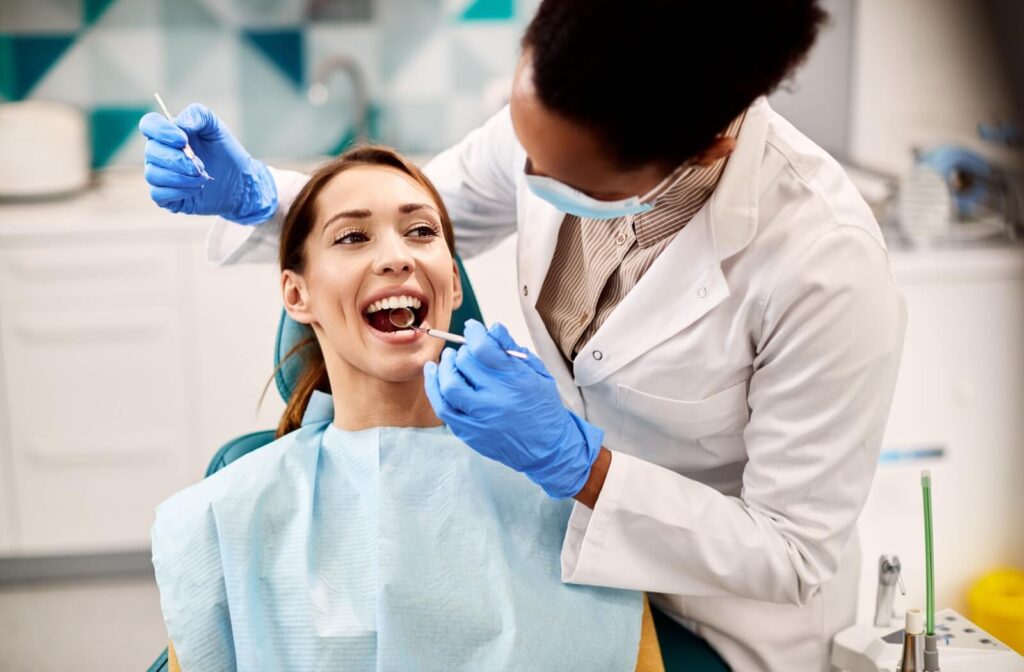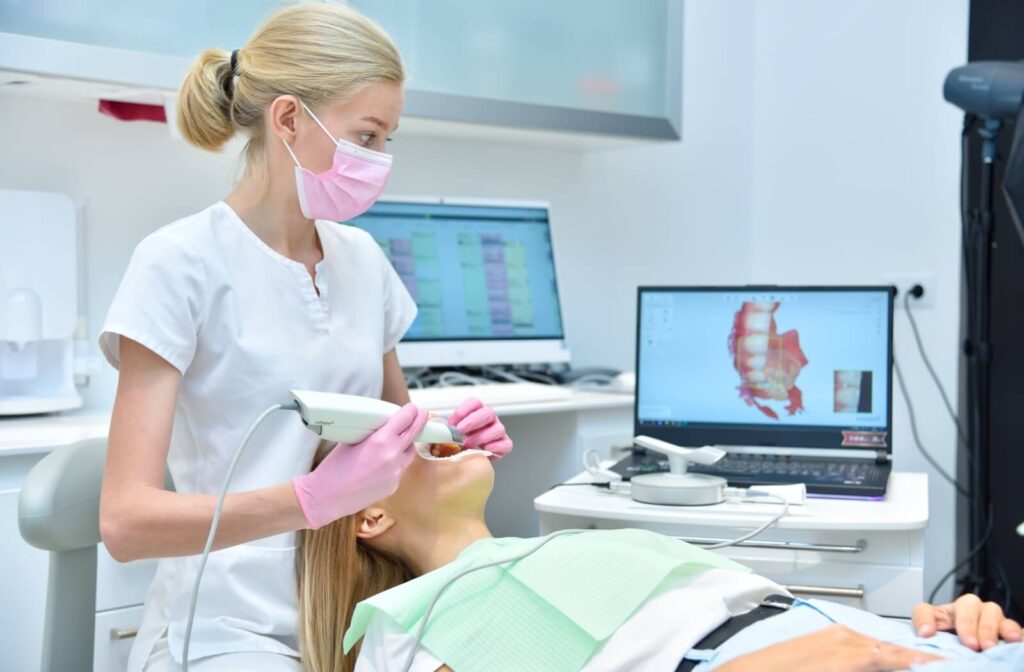
Maintaining good oral health isn’t just about brushing and flossing but staying proactive with regular dental visits. A dental recall exam is a routine check-up designed to monitor and maintain oral health. It can help identify or prevent future problems while keeping your gums and teeth in good shape.
What Is a Dental Exam?
Before jumping into dental recall exams, it can be helpful to understand the different types of exams you might encounter and what purposes they can serve.
Comprehensive Dental Exams
A comprehensive dental exam is a head-to-toe evaluation of your oral health. During this appointment, your dentist will:
- Assess your teeth, gum, and jaw.
- Take X-rays for a deeper look at your dental structure.
- Check for signs of cavities, gum disease, or oral cancer.
A comprehensive dental exam is typically done every 2 to 3 years to establish a baseline of your oral health. It’s an appointment where your long-term dental strategies will be established and developed.
Emergency Dental Exams
You may need an emergency dental exam if you’ve chipped your tooth, experienced sudden toothache, or suffered a dental injury. These appointments typically address immediate issues, such as relieving discomfort or repairing damaged teeth.
Recall Dental Exams
Recall exams, known as routine checkups, are the most common dental appointments. These scheduled visits are typically used for maintenance and help your dentist develop and implement an ongoing strategy for optimal dental health.
Alongside your baseline data, your recall exams allow your dentist to prepare and predict any issues that may arise, helping to prevent serious harm.
How Often Do You Need a Recall Exam?
The general rule of thumb is to visit the dentist every 6 months, which can vary depending on your needs:
- Children and teens should aim for 1 or 2 exams annually, as their teeth are more prone to cavities.
- Adults should schedule check-ups every 6 months or as recommended by their dentist.
- Seniors may require more frequent visits to address issues like gum recession, tooth wear, and dry mouth.
- At-risk patients, like those with diabetes or gum disease, may need more frequent exams for close monitoring.

What Typically Happens at a Dental Recall Exam?
Reviewing Medical & Dental History
Your dentist may begin your exam by asking about your medical and dental history. This could include discussing new medications, chronic conditions, or any recent dental treatments.
Professional Teeth Cleaning
Professional cleanings remove plaque and tartar that your toothbrush can’t reach, preventing gum disease, cavities, and other oral issues while promoting fresher breath and a healthier smile. Regular teeth cleaning is a key component of maintaining your oral health, and helps keep your teeth clean, strong, and smooth.
X-Rays When Necessary
X-rays can be an excellent tool for identifying hidden problems like cavities between teeth, impact teeth, or bone loss. It is a way for your dentist to easily see inside, and there is a variety of issues that can only be detected with the help of imaging technology.
For your safety, it may be worth opting for a dentist who uses digital x-ray technology; it uses far less radiation than traditional x-rays.
Oral Cancer Screening
Your dentist can carefully examine your mouth, lips, and throat for unusual lumps, sores, discoloration, or other signs of oral cancer. Early detection is essential for effective treatment and ongoing improved dental health.
Why Are Dental Recall Exams Important?
Dental recall exams are more than just routine appointments—they’re foundational to preventive oral health care.
Detect problems early: Regular dental exams help catch issues like cavities, gum disease, and oral cancer early, allowing prompt treatment. A preventive approach helps stop concerns from escalating into major problems.
Save time & money: Addressing dental issues early can prevent costly procedures and lengthy treatments. Prevention is often more affordable than cure.
Improve overall health: Your oral health is linked to your overall health. Maintaining a healthy mouth can lower your risk of heart disease, diabetes, and strokes. Your smile isn’t just cosmetic—it’s connected to your well-being.
Tips for Maintaining Oral Health Between Visits
Getting dental recall exams doesn’t replace daily maintenance—to keep your teeth and gums healthy, you should maintain a thorough oral health routine at home.
You should:
- Brush twice daily using fluoride toothpaste to strengthen enamel.
- Floss daily to remove hidden plaque between teeth.
- Limit sugary foods and beverages, which contribute to tooth decay
- Eat a balanced diet rich in calcium and vitamins for stronger teeth and gums
Following these tips can help reduce the risk of dental issues and make the most of your recall exams.
How Smyl Dentistry Can Help
At Smyl Dentistry, a healthy smile is a confident smile. Our dental recall exams combine cleanings, thorough evaluations, and personalized care strategized for your needs—present and future. We’re here to maintain, restore, reconstruct, and renovate your oral health.
Whether you’re due for a routine check-up or have a specific concern, our dedicated team is here to help improve your oral health. Book your next recall exam with us today.
Contact Information
- Phone: 416-531-2761
- Email: [email protected]
Address
- 608 Bloor Street W
- TORONTO, ON M6G 1K4
Hours
Parking
Green P parking on Palmerston and Euclid, residential street parking, meter parking on Bloor. Residential street parking from 10a-12a
Subway
One block over from TTC subway station (Bathurst)

